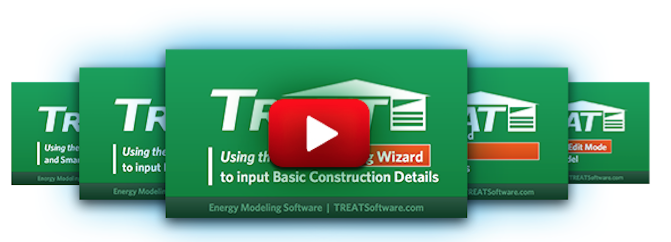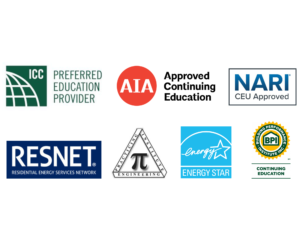Our trainers have been there before. They’ve crawled through damp basements and dusty attics, boiler rooms, and skyscraper roofs. They share this intimate knowledge of how buildings work in the courses they teach and consistently receive rave reviews from their students.
Our building science curriculum was one of the first in the US developed specifically to incorporate all aspects of becoming a whole house building performance contractor for existing housing stock, including diagnostic investigation, installation, remediation, as well as a full range of best practices. We deliver courses for beginners and advanced certifications. Our roster includes BPI, RESNET, AIA, EPA, IECC, software end-user classes, and advanced training that address the complexities of multifamily and commercial projects. To meet the diverse needs of this quickly growing industry, we offer courses delivered in classrooms, in the field, and through online webinars.
PSD has an extensive background in supporting states and regions with energy code training. Agencies and utilities that engage in new code adoption processes sponsor compliance and transition training for code officials, architects, builders, designers, and other professionals.
PSD is changing the way building and engineering professionals approach energy modeling with NREL’s OpenStudio platform for EnergyPlus – are you prepared for the shift? We offer a variety of OpenStudio support services to help you get there! Our advanced classes are taught by our expert engineering staff and can be scheduled at your convenience.
Our staff are highly experienced professionals who deeply understand the industry. We provide a comprehensive range of quality training for HERS Raters and Providers. Our technical support team includes experienced trainers, builders, and HERS Raters who offer in-house expertise for accurate modeling advice and recommendations. Training ranges from monthly educational webinars to ENERGY STAR training and HERS Rater Certification.
This course will prepare you to become part of an elite group of Certified Measurement & Verification Professional engineers. As a CMVP, you will serve as a key catalyst for energy-efficient retrofits by helping building owners and financiers manage risk and have confidence in the forecasted return on investment. In this course, you’ll learn how to develop and implement Performance Risk Management Plans, and address the six fundamental M&V principles defined by the Efficiency Valuation Organization’s International Performance Measurement and Verification Protocol (IPMVP).



